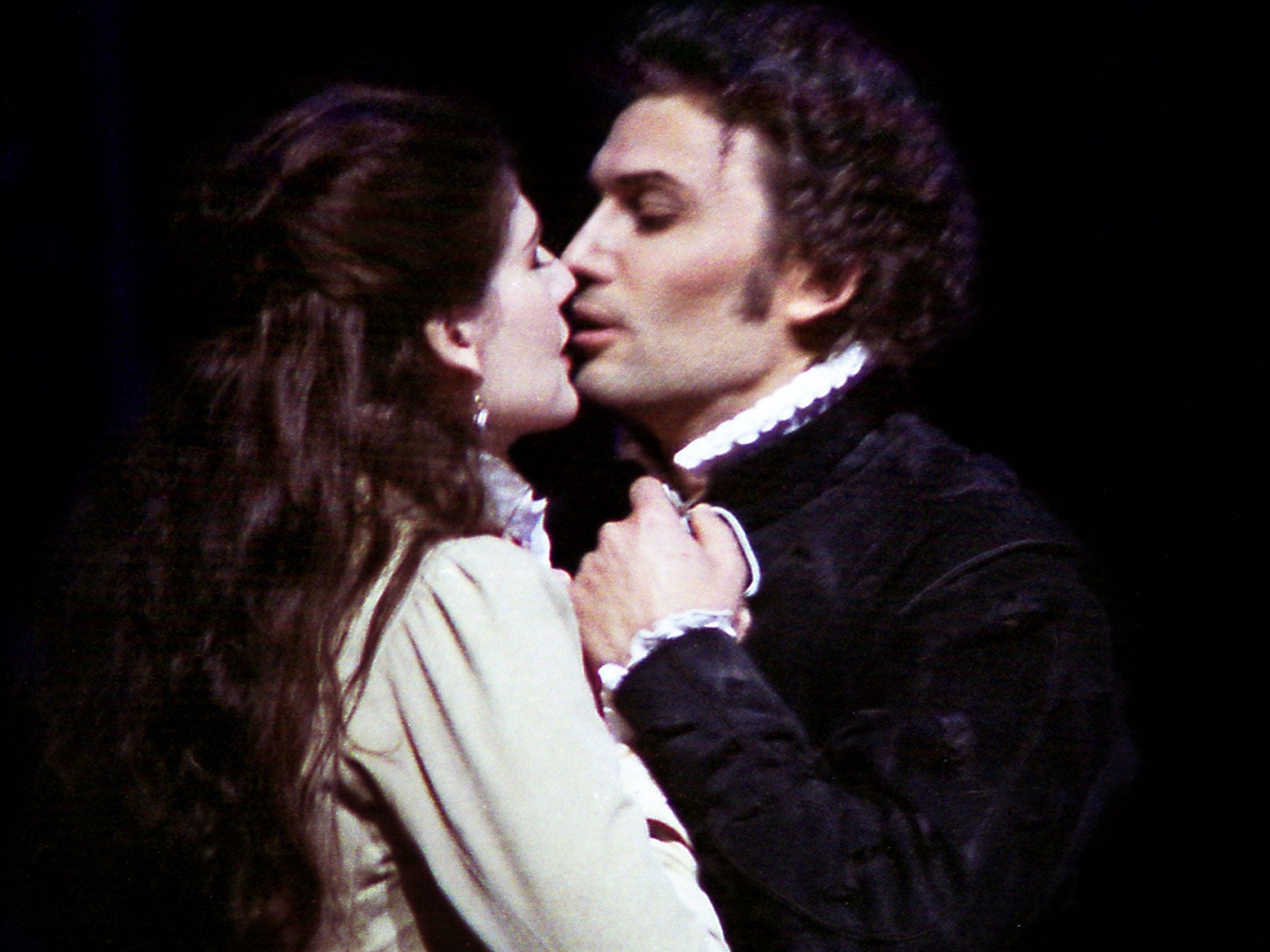Classical review: Don Carlo - Spite is even spikier second time around
Verdi's most powerful drama packs a punch in a revival of Nicholas Hytner's production with an all-star cast

In no other opera did Verdi dramatise the conflict between romantic desire and political imperative, church and state, idealism and repression with such devastating intensity as in Don Carlo. "Nothing in the drama is historical," he wrote, "but it contains a Shakesperean truth and profundity of characterisation." Those who see it as his greatest work would agree. But with greatness comes the great challenge of casting.
Returning as Carlo was Jonas Kaufmann, who is blessed with A-list looks and vocal artistry to match. German soprano Anja Harteros played Elizabeth of Valois, to whom Carlo is betrothed before his father, King Philip, decides to marry her himself. It was this pairing that created some fuss ahead of this second revival of Nicholas Hytner's 2008 staging.
Their first meeting in the icy woods of Fontainebleau was slow to catch fire, but each subsequent meeting raised the temperature as Kaufmann drew more warmly sculpted phrasing, and Harteros responded with beautifully judged restraint: her lower register can be quite veiled but blooms exquisitely higher up. Where the original production boasted an elfin Rolando Villazón and a glacial Marina Poplavskaya, this pair emphasised the couple's equality in tragedy. Harteros's "Tu che le vanità" and final duet with Don Carlo scaled heights that one normally only dreams of.
Roderigo, Don Carlo's brother in arms in the Flemish struggle for freedom, was sung here by Mariusz Kwiecien – less charismatic than 2008's Simon Keenlyside – with his full emotional intensity reached only in death. A magnificent constant in this production, however, remains Ferruccio Furlanetto as Philip II of Spain: merciless as despot, heartsick as he accepts his wife has never loved him, and chilling as he plots his own son's death with the poisonous Grand Inquisitor (Eric Halfvarson again).
In the pit, Antonio Pappano extracts every last ounce of menace, fear made palpable in the horns before the burning of the heretics. The staging is broadly successful, with its darkness and redness underscoring Philip's grim promise to Posa that "death has a rich future in my hands".
Mahan Esfahani (Wigmore Hall, London ****), an Iranian-American on the cusp of 30, holds the unique position of being the first harpsichordist ever to give a solo recital at the Proms, last year. Devoting the first half of his Wigmore Hall concert to William Byrd, he nonetheless managed to imply a snapshot history of the instrument from the English Renaissance to the 1970s.
Addressing his audience with the urbanity of a latter-day Tom Lehrer, Esfahani declared that Byrd was "the liberator of the keyboard", which he proceeded to demonstrate by means of ever more intricate galliards and variations. He proved a master at tracing a line through this Elizabethan surround sound, allowing each of the different voices to emerge in focus before replacing it within the shifting contours of the music.
From there, we progressed to The Musical Offering, the fruit of Frederick II's challenge to Bach in 1747. The king gave Bach a theme on which to extemporise a three-voice fugue on the spot, which he did. The king then requested one in six voices, to which Bach replied that he needed more time. Two months later, Bach sent the king a whole collection of fugues and canons, from which Esfahani played the three- and six-voice fugues, and then the astonishing, endlessly rising Canon a 2 per Tonos, which he likened to an Escher staircase.
In the further reaches of weird was Ligeti's Passacaglia ungherese, which deconstructs harpsichord sonority, moving between tonality and dissonance in a way that is astonishingly pleasing. Continuum features rapidly repeated notes in the upper register until they accelerate into invisibility. Fortunately this is not something Esfahani himself is liable to do any time soon, since he has just been granted leave to stay in the UK: good news for him and also for us.
'Don Carlo' (020-7304 4000), to 25 May
Critic's Choice
Opera North's new staging of Benjamin Britten's comedy Albert Herring has Alexander Sprague in the title role and Dame Josephine Barstow as the autocratic Lady Billows (Leeds Grand, Wed & Thu). In London, Bach Unwrapped continues with three concerts focusing on the motets and Lutheran Masses given by The Sixteen, under Harry Christophers (Wed, Thu, Sat). Bach specialist John Butt returns for the last instalment of his Brandenburg Cantatas with the OAE (Fri).
Subscribe to Independent Premium to bookmark this article
Want to bookmark your favourite articles and stories to read or reference later? Start your Independent Premium subscription today.

Join our commenting forum
Join thought-provoking conversations, follow other Independent readers and see their replies